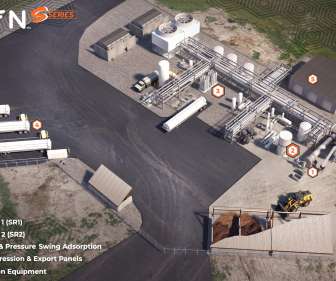Researchers develop four-step catalytic process to produce petroleum refinery feedstocks from biomass sugars
Green Car Congress
JANUARY 3, 2013
A team of researchers led by James Dumesic and George Huber, both now at the University of Wisconsin-Madison, have demonstrated how C 5 sugars derived from hemicellulose can be converted into a high-quality petroleum refinery feedstock via a four-step catalytic process. Source: Olcay et al. Click to enlarge. —Olcay et al.












Let's personalize your content